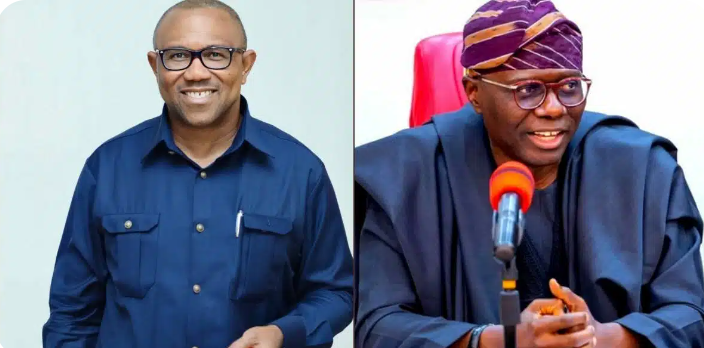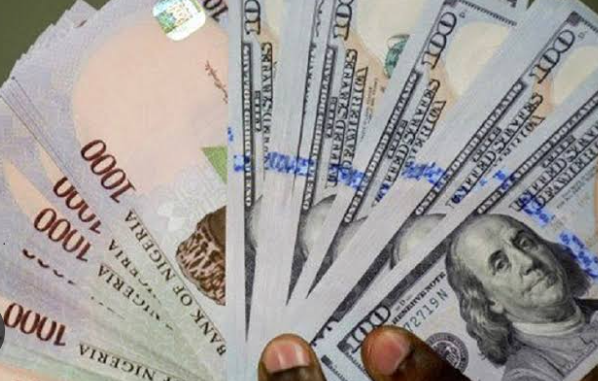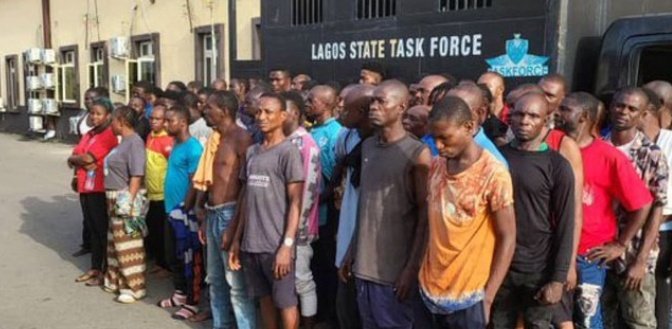
Peter Obi Responds to Sanwo-Olu's Accusation of 'Demarketing Nigeria' with Data-Driven Rebuttal

Former Labour Party presidential candidate Peter Obi has fired back at Lagos State Governor Babajide Sanwo-Olu, who accused him of "demarketing" Nigeria on the international stage. The controversy erupted following Obi’s remarks at Johns Hopkins University in the United States, where he expressed concerns about Nigeria’s worsening poverty, insecurity, and governance issues.
Governor Sanwo-Olu criticized Obi’s statements, asserting that they painted Nigeria in a negative light abroad. The Lagos governor also questioned Obi’s moral authority to criticize the state of the nation, pointing to rising poverty statistics during Obi’s tenure as governor of Anambra State.
“But after only two years in office, the poverty rate in Anambra jumped to 53.7%. His successor later brought it down. So I’m not sure Mr. Obi is morally well-placed to make the alarming claims he made,” Sanwo-Olu stated, insinuating that Obi’s past governance record undercuts his recent critiques.
However, Obi did not take the accusation lightly. Speaking at a memorial service for the late elder statesman Edwin Clark on Wednesday, he offered a pointed and data-backed response without directly mentioning Sanwo-Olu. Obi questioned the logic behind labeling the truth as "demarketing" Nigeria, emphasizing that objective data cannot be dismissed simply because it is uncomfortable.
“People say I am demarketing Nigeria. When is truth being demarketed? The World Bank has just shown that 75% of Nigerians in rural areas are poor. Is the World Bank demarketing Nigeria?” Obi asked, challenging the notion that highlighting the country’s challenges equates to tarnishing its image.
Obi further strengthened his argument by citing a UNICEF report, which states that Nigeria now has the second-highest rate of malnourished children globally, affecting over two million children. “Are they demarketing Nigeria?” he inquired, suggesting that these grim statistics reflect reality rather than an attempt to discredit the nation.
Expressing his concern about the state of governance in Nigeria, Obi lamented that the sacrifices made by the nation’s founding fathers had been rendered futile by what he described as widespread lawlessness, democratic regression, and ineffective leadership. He remarked on the apparent contradiction between the way citizens reacted to fuel price increases during previous administrations compared to recent hikes.
“I listened to my brother Mike when you talked about, ‘may the labour of our heroes past not be in vain.’ I’m happy that General Gowon is here, Jonathan is here. But I can tell you their sacrifice is in vain,” Obi declared. He continued, “We were in this country when people were protesting under Jonathan, when there was no need to protest. Jonathan increased fuel from N87 to N120, but when it was N900, they were not protesting. Where are those protesters today? Have they died?”
Obi’s speech also touched on the perceived erosion of electoral integrity in Nigeria, referencing the recent elections in Edo State. He insinuated that the true winner of the election was apparent, despite the official results, hinting at irregularities without naming specific parties or individuals.
Obi’s remarks have stirred considerable reactions both domestically and internationally. Supporters applaud his courage to address the country’s challenges openly, while critics argue that his statements might undermine Nigeria’s image on the global stage. Nonetheless, the debate between both political figures continues to capture public attention, reflecting broader tensions within Nigeria’s political discourse.

